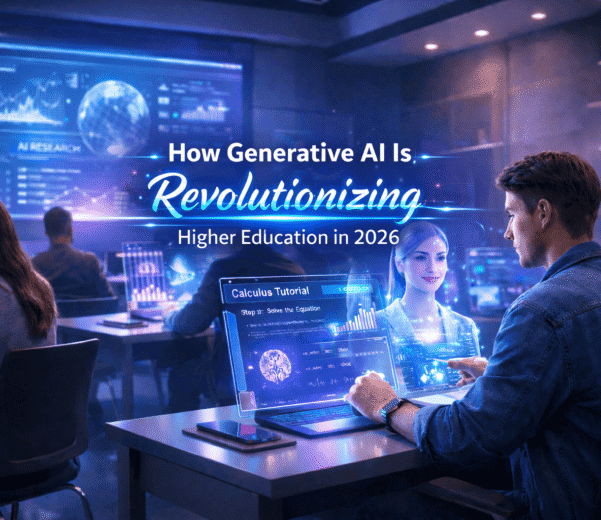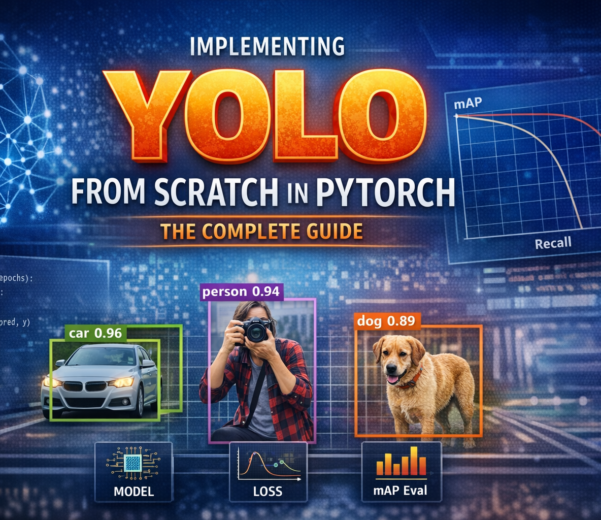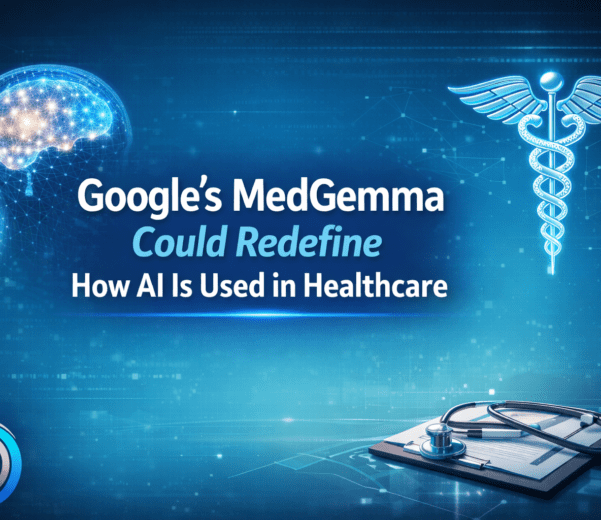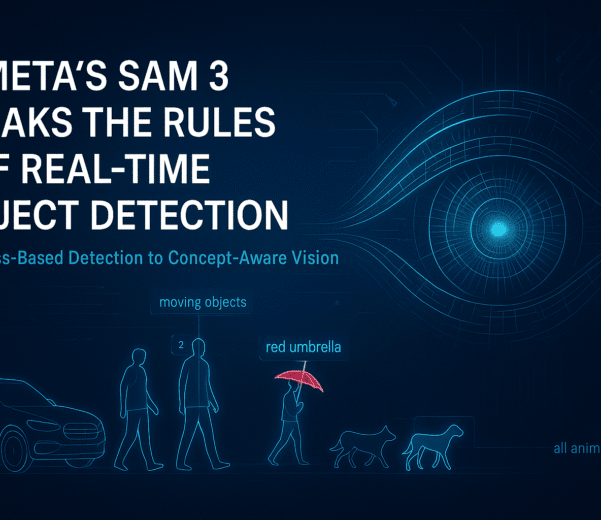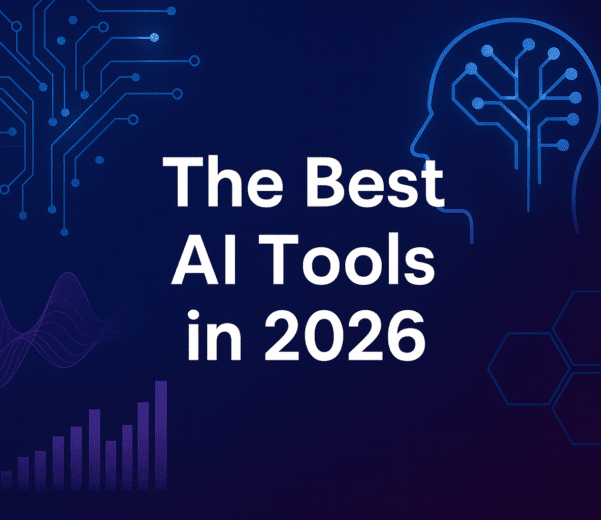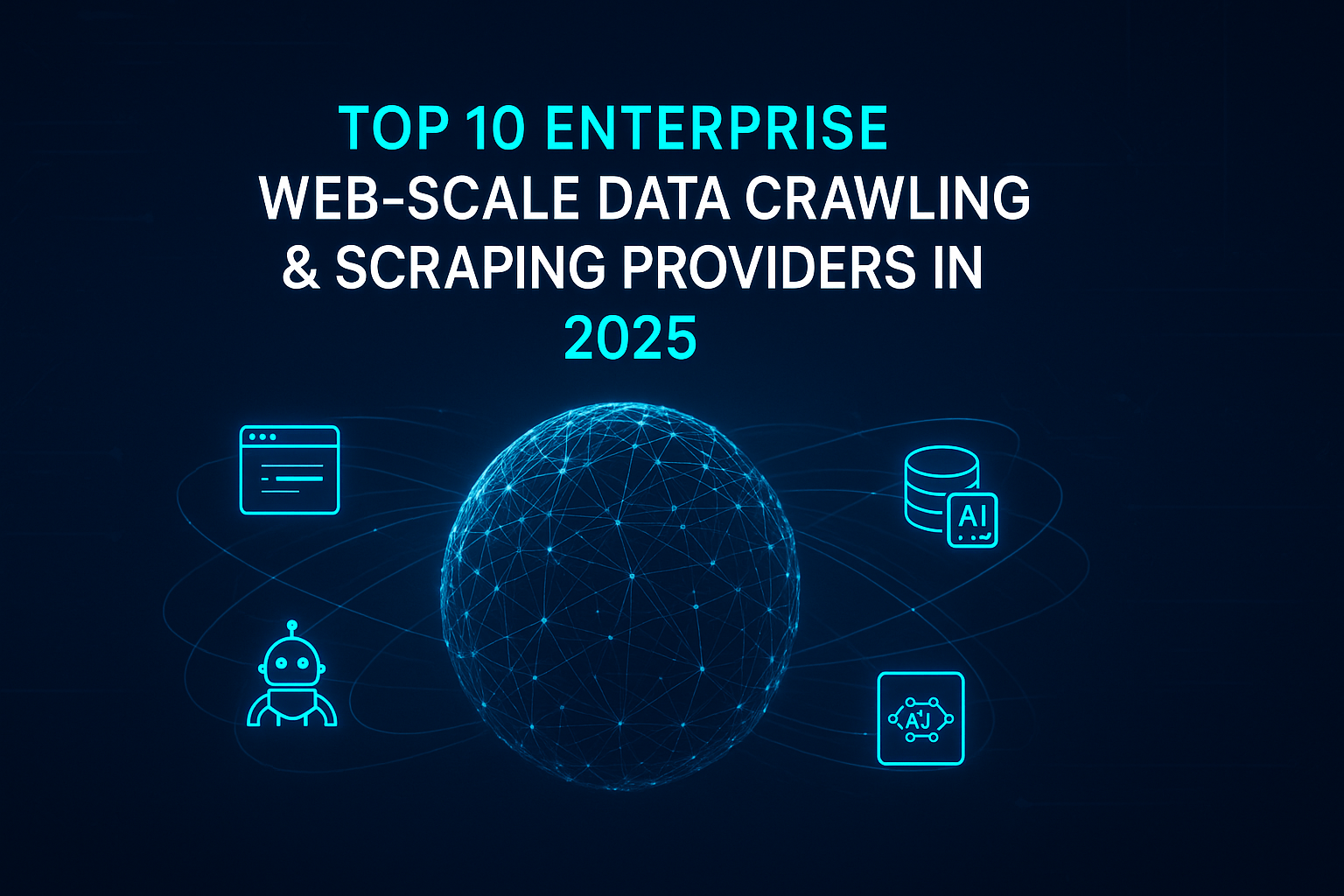Medical Generative AI
Fueling Innovation in Healthcare with Generative AI
Experience the future of healthcare with our cutting-edge Healthcare Generative AI services. We are dedicated to leveraging the latest advancements in AI to empower healthcare professionals, improve patient outcomes, and drive innovation in medical research and practice.
// What is Generative AI in Healthcare?
Generative AI utilizes advanced algorithms to analyze vast amounts of medical data and generate valuable insights. This can include:
- Medical imaging analysis: AI can assist radiologists in identifying abnormalities in X-rays, MRIs, and CT scans, leading to faster and more accurate diagnoses.
- Personalized medicine: Generative AI can analyze your unique medical history and genetic makeup to create personalized treatment plans, maximizing treatment effectiveness and minimizing side effects.
- Drug discovery: AI can accelerate the development of new medications by generating potential drug candidates and predicting their efficacy.
- Patient education: Generative AI can create customized educational materials tailored to your specific condition, improving your understanding and empowering you to make informed decisions about your health.

// Synthetic data aids Healthcare GenAI
Patient Demographics
Synthetic data is generated to mimic various patient demographics, including age, gender, ethnicity, socioeconomic status, and geographic location. This diversity ensures that GenAI models are trained on a representative population.
Medical History
Synthetic data includes simulated medical histories, such as past illnesses, surgeries, allergies, and family medical history. This information helps GenAI systems understand the context of a patient's current health status and make more accurate predictions.
Symptoms and Diagnoses
Synthetic data incorporates a wide range of symptoms and diagnoses across different medical conditions. By simulating diverse clinical scenarios, GenAI models learn to recognize patterns and accurately diagnose diseases.
Treatment Plans
Synthetic data includes simulated treatment plans, such as medications, surgeries, therapies, and lifestyle interventions. GenAI systems learn to recommend appropriate treatments based on patient characteristics and medical evidence.
Diagnostic Images
Synthetic data generation techniques can create realistic medical images, such as X-rays, MRIs, CT scans, and histopathology slides. These images are used to train GenAI models for tasks like image interpretation, disease detection, and treatment planning.
Progress Notes
Synthetic progress notes are generated to simulate physician documentation of patient encounters. These notes contain information about the patient's history, physical examination findings, diagnostic test results, treatment plans, and follow-up recommendations.
Genomic Data
Synthetic genomic data includes simulated DNA sequences, genetic variations, and gene expression profiles. GenAI models trained on synthetic genomic data can predict disease risks, identify genetic predispositions, and personalize treatments.
Electronic Health Records
Synthetic EHR data replicates the structure and content of real electronic health records, including patient demographics, medical history, laboratory results, medications, and clinical notes. This comprehensive data source enables GenAI systems to learn from longitudinal patient records.
Natural Language Processing (NLP) Corpus
Synthetic NLP corpora contain simulated clinical text data, such as medical literature, physician notes, patient narratives, and social media posts. GenAI models trained on synthetic NLP data can extract information, infer meaning, and generate responses in natural language.
// Benefits of using GenAI in Healthcare
Improved patient care
Increased efficiency
Enhanced administrative tasks
Personalized communication
Drug discovery & development
Medical imaging analysis
// Healthcare GenAI Use Cases
Extracting Question & Answering Pairs
- Simple to complex questions: We craft questions that range from basic inquiries to in-depth analysis.
- Extracting knowledge from data: We can turn medical tables into clear, answerable questions.
- Clinical guidelines and protocols: Established best practices for medical care.
- Doctor-patient interactions: Real-world conversations to understand common concerns.
- Medical research: Up-to-date studies on diseases and treatments.
- Drug information: Detailed specifications and uses of medications.
- Regulations: Official guidelines governing healthcare practices.
- Patient experiences: Reviews, forums, and communities to understand patient perspectives.

A recent study published in the Journal of Clinical Oncology investigated the efficacy of immunotherapy in the treatment of advanced lung cancer. The study, conducted over a two-year period, enrolled 500 patients with stage IV non-small cell lung cancer. Patients were randomly assigned to receive either standard chemotherapy or a combination of chemotherapy and immunotherapy. The results showed that patients who received the combination therapy had significantly longer overall survival compared to those who received chemotherapy alone. Additionally, the combination therapy was well-tolerated, with manageable side effects.
Question 1: What was the focus of the study published in the Journal of Clinical Oncology?
Answer 1: The study investigated the efficacy of immunotherapy in the treatment of advanced lung cancer.
Question 2: How many patients were enrolled in the study?
Answer 2: The study enrolled 500 patients with stage IV non-small cell lung cancer.
Question 3: What were the treatment options for the patients in the study?
Answer 3: Patients were randomly assigned to receive either standard chemotherapy or a combination of chemotherapy and immunotherapy.
Question 4: What were the findings regarding overall survival in the study? Answer 4: Patients who received the combination therapy had significantly longer overall survival compared to those who received chemotherapy alone.
Question 5: Were there any notable observations about the tolerability of the treatment?
Answer 5: Yes, the combination therapy was well-tolerated, with manageable side effects.
Text Summarization
Feeling overwhelmed by medical information? Our healthcare specialists are here to help! We can transform complex medical documents into clear and concise summaries, saving you valuable time.
- Medical Records Made Easy: We turn lengthy Electronic Health Records (EHRs) into summaries that highlight key medical history and treatment information.
- Unlocking Doctor-Patient Conversations: Get the gist of consultations quickly with summaries that capture the most important points.
- Research in a Flash: We distill complex research articles into their essential findings, so you can grasp the latest medical advancements.
- Imaging Explained: No need to decipher radiology reports anymore. We provide clear summaries that make medical images understandable.
- Clinical Trials Demystified: We break down extensive clinical trial data, giving you the most critical takeaways.
A 72-year-old male arrived reporting a 3-day progression of right lower abdominal pain with cramping. The pain began mildly but intensified over the last day. It’s described as sharp and stabbing, radiating to the groin. He additionally experiences nausea and occasional vomiting, but denies fever, chills, or urinary issues. His medical history includes controlled hypertension with Lisinopril as medication. He avoids tobacco and limits himself to one evening glass of wine. Examination revealed normal vital signs except for a slightly elevated temperature. A tender right lower abdomen was identified, but without muscle rigidity or increased pain with palpation. Bowel sounds were present. Lab results showed a mildly elevated white blood cell count. An ultrasound scan suggested appendicitis. Based on these findings, he was diagnosed with acute appendicitis and scheduled for a laparoscopic appendectomy. Post-operative care instructions were provided.
- Patient Demographics: 72-year-old male
- Chief Complaint: 3-day progression of right lower abdominal pain with cramping, intensifying over the last day, sharp and stabbing, radiating to the groin
- Associated Symptoms: Nausea, occasional vomiting
- Denies: Fever, chills, urinary issues
- Medical History: Controlled hypertension, taking Lisinopril
- Lifestyle: Non-smoker, limits alcohol intake to one glass of wine per evening
- Physical Examination: Vital signs within normal limits, slightly elevated temperature, tender right lower abdomen without muscle rigidity, present bowel sounds
- Lab Results: Mildly elevated white blood cell count
- Diagnostic Imaging: Ultrasound suggestive of appendicitis
- Diagnosis: Acute appendicitis
- Treatment: Laparoscopic appendectomy scheduled
- Post-operative Care: Instructions provided.
// Why choose Us
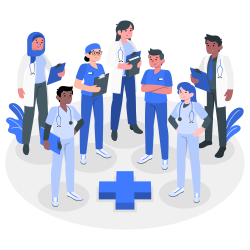
Expertise in Healthcare AI
SO Development specializes in Healthcare AI solutions, with a team of experts experienced in developing and implementing AI technologies specifically tailored for the healthcare industry.
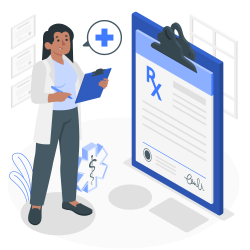
Advanced NLP and LLM Capabilities
SO Development utilizes state-of-the-art Natural Language Processing (NLP) and Large Language Models (LLM) to deliver cutting-edge AI solutions that can extract valuable insights from unstructured healthcare data.

Customized Solutions
SO Development works closely with clients to understand their unique needs and challenges, providing customized Healthcare AI solutions that address specific use cases and requirements.
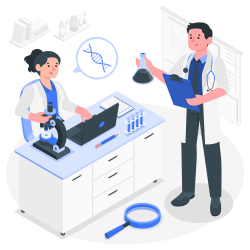
Scalability and Integration
SO Development's Healthcare AI services are designed to scale with the growing needs of healthcare organizations, and can seamlessly integrate with existing IT systems and workflows.
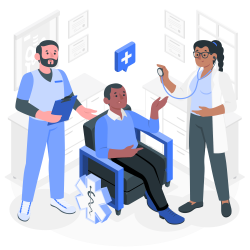
Proven Track Record
SO Development has a proven track record of delivering successful Healthcare AI projects for a diverse range of clients, including hospitals, clinics, research institutions, and pharmaceutical companies.
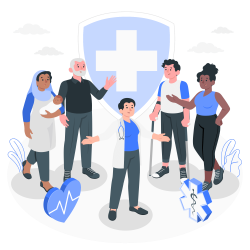
Continuous Support and Maintenance
SO Development provides ongoing support and maintenance for their Healthcare AI solutions, ensuring that they remain effective and up-to-date in an ever-evolving healthcare landscape.
// Security You Can Trust
Ensuring the Highest Levels of Data Security and Confidentiality: Rest Assured, Your Valuable Data is Protected and Secure in Our Care
SO Development prioritizes data security and compliance with healthcare regulations, ensuring that all AI solutions adhere to strict privacy standards such as HIPAA and GDPR.
// Frequently Asked Questions
Medical GenAI is an artificial intelligence system designed to assist healthcare professionals in diagnosing diseases, predicting outcomes, and recommending treatments using advanced algorithms and data analysis.
Medical GenAI works by analyzing medical data such as patient records, diagnostic images, genetic information, and research literature. It uses machine learning and natural language processing algorithms to identify patterns and relationships in the data, allowing it to make predictions and recommendations.
Medical GenAI's accuracy depends on the quality and quantity of the data it's trained on. While it can provide valuable insights and assistance to healthcare professionals, it's important to remember that it's not infallible and should always be used in conjunction with clinical judgment.
No, medical GenAI is not capable of replacing human doctors. It's designed to augment the capabilities of healthcare professionals by providing them with additional information and insights to aid in decision-making.
Patient privacy is a top priority when using medical GenAI. Data is anonymized and encrypted to prevent unauthorized access, and strict security protocols are in place to ensure compliance with privacy regulations such as HIPAA (Health Insurance Portability and Accountability Act).
Regulations governing medical GenAI vary by country and region. In the United States, the Food and Drug Administration (FDA) regulates medical AI software as a medical device, and developers must demonstrate safety, effectiveness, and quality control through the FDA's premarket review process. Other countries may have similar regulatory frameworks in place.
Potential risks and limitations of using medical GenAI include biases in the training data, errors in the algorithms, lack of transparency in decision-making, and overreliance on technology at the expense of clinical judgment. Healthcare professionals need to be aware of these risks and use medical GenAI as a tool rather than a substitute for their expertise.
// Ask Us Anything Anytime
Give us a call or drop a message by anytime, we endeavour to answer all enquiries within 24 hours on business days. We will be happy to answer your questions.




